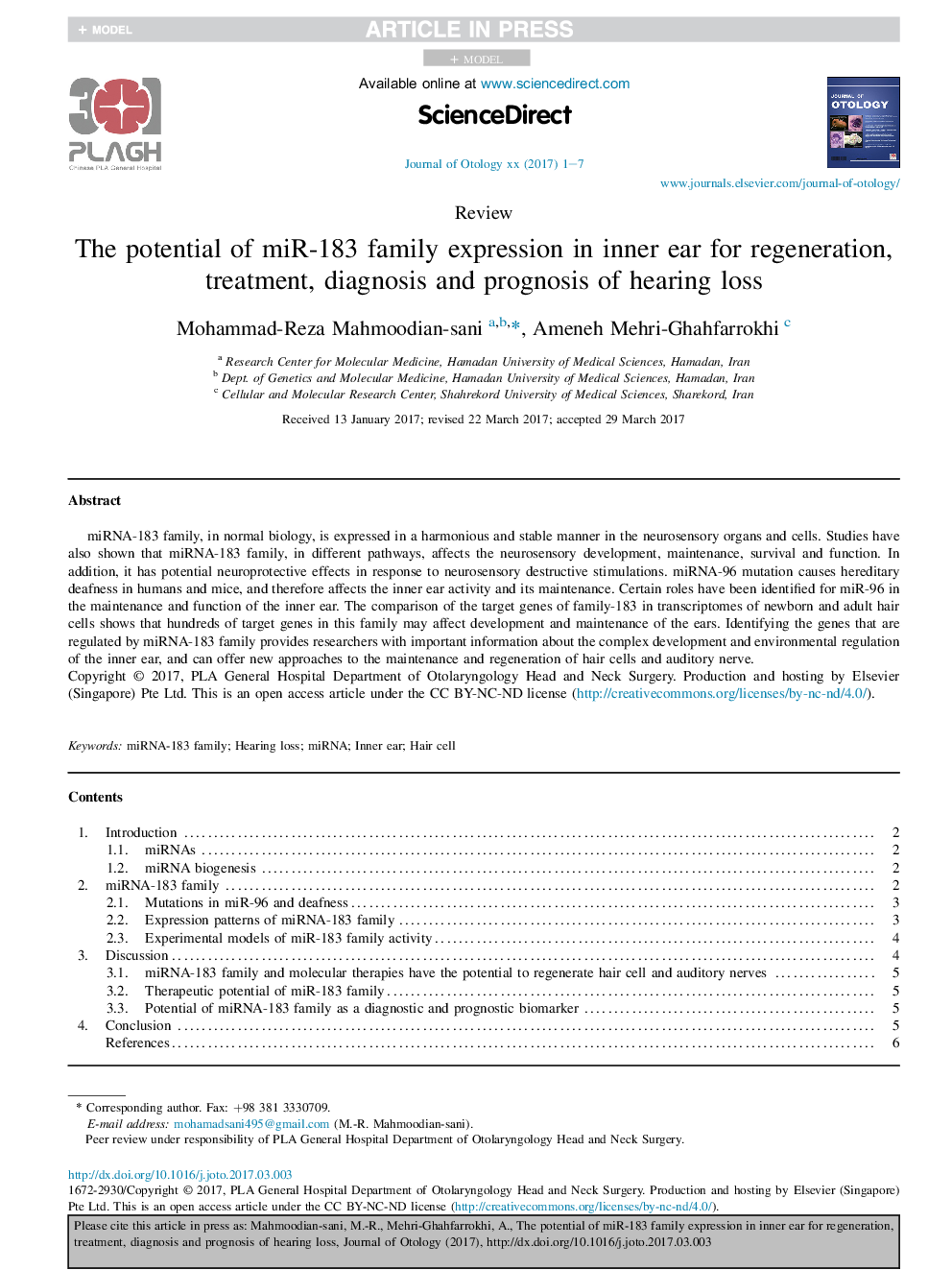| Article ID | Journal | Published Year | Pages | File Type |
|---|---|---|---|---|
| 5714987 | Journal of Otology | 2017 | 7 Pages |
Abstract
miRNA-183 family, in normal biology, is expressed in a harmonious and stable manner in the neurosensory organs and cells. Studies have also shown that miRNA-183 family, in different pathways, affects the neurosensory development, maintenance, survival and function. In addition, it has potential neuroprotective effects in response to neurosensory destructive stimulations. miRNA-96 mutation causes hereditary deafness in humans and mice, and therefore affects the inner ear activity and its maintenance. Certain roles have been identified for miR-96 in the maintenance and function of the inner ear. The comparison of the target genes of family-183 in transcriptomes of newborn and adult hair cells shows that hundreds of target genes in this family may affect development and maintenance of the ears. Identifying the genes that are regulated by miRNA-183 family provides researchers with important information about the complex development and environmental regulation of the inner ear, and can offer new approaches to the maintenance and regeneration of hair cells and auditory nerve.
Keywords
Related Topics
Life Sciences
Neuroscience
Cellular and Molecular Neuroscience
Authors
Mohammad-Reza Mahmoodian-sani, Ameneh Mehri-Ghahfarrokhi,
